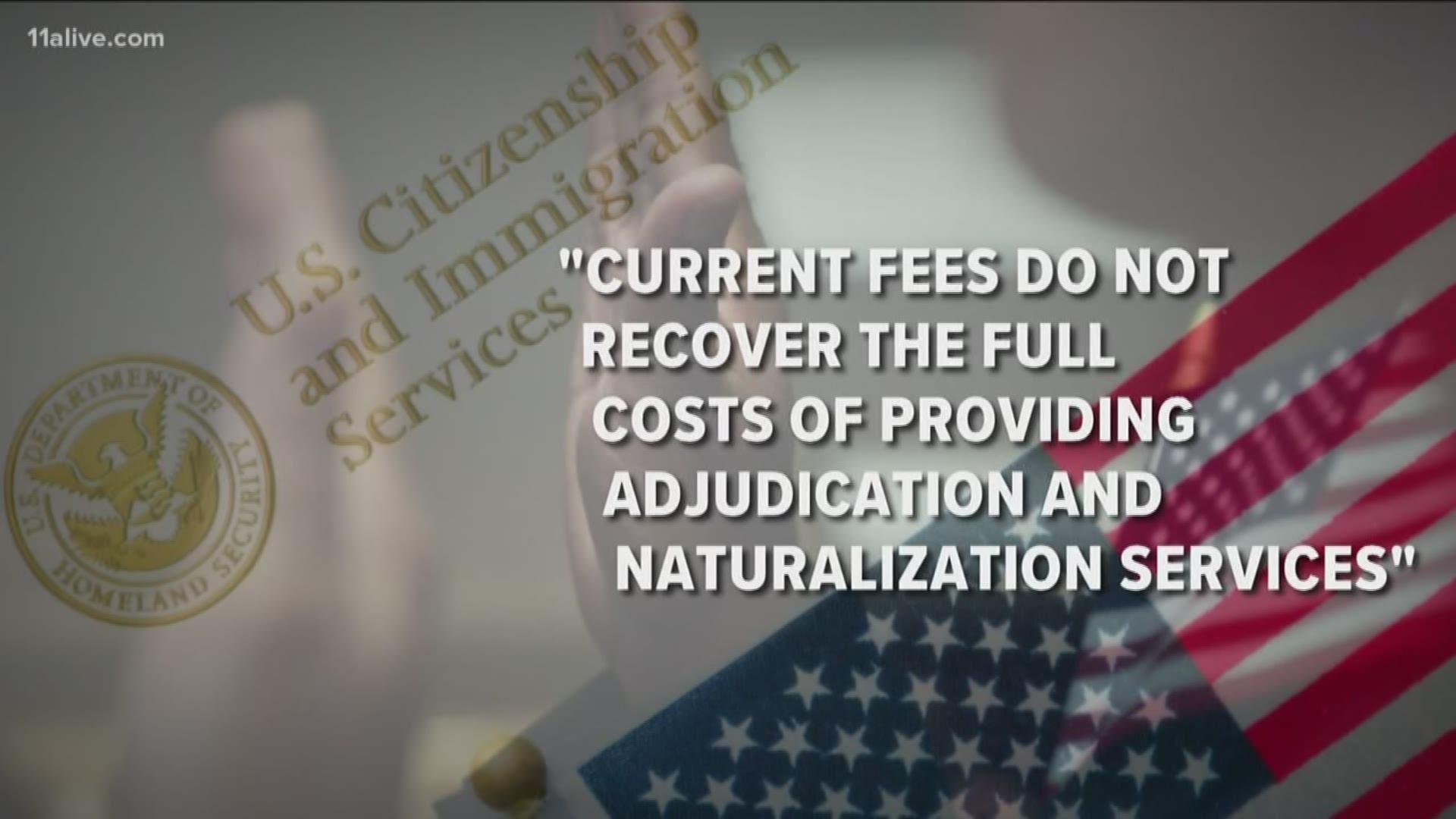ATLANTA — Chasing the American Dream could soon cost a lot more.
The Trump Administration is looking to increase the costs immigrants pay to become a U.S. citizen. Opponents say it's a way to target the poor and vulnerable.
The administration said the fees were set below estimated costs to promote naturalization and immigrant integrations, but U.S. Citizenship and Immigration Services now feels differently, given the significant increase in applications.
The organization said: "current fees do not recover the full costs of providing adjudication and naturalization services."
Changes could impact roughly nine million immigrants eligible to become citizens. A citizenship application fee would jump from $640 to $1,170, an 83 percent increase. Legal permanent residency fees would go up 79 percent from $1,220 to $2,195.
Right now, the Supreme Court is considering whether to allow the Trump administration to end Deferred Action for Childhood Arrivals (DACA).
The proposed fee increase would impact that program as well, raising the rates for renewals from $495 to $765, and giving the administration a way to possibly limit the program if justices decide to allow it to continue.
People seeking asylum, temporary protected status beneficiaries, and legal permanent residents would also see a higher fee as well.
Critics of the proposed increases say they target the poor and those in vulnerable positions by pricing them out of citizenship.
Immigration advocates said anyone looking to become a citizen should to apply as soon as possible. They said doing so now could allow some to gain citizenship in time to register to vote in the 2020 election.
Congressman Jesus Garcia, a Democrat from Illinois, recently proposed a bill that would limit the administration's ability to raise citizenship fees without first gaining congressional approval.
The legislation would also set aside more funding for programs to make it easier for immigrants to apply for citizenship.
The proposed increases will now enter a public comment phase that will end on Dec. 16.
MORE HEADLINES

